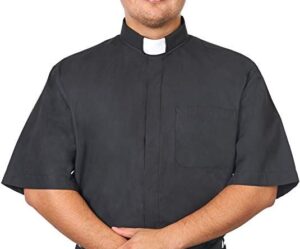
MANY CHRISTIAN leaders want the culture of clericalism brought to an end or eliminated from Christianity to promote accountability in local churches, deal with corruption and enhance the work of God.
But are pastors willing to give up on clericalism as most of them are intentionally or unintentionally holding on to practices that firmly promote it.
We explained clericalism in a previous article which was also published on the website.
Clericalism is widely known to be initiated by the ceremony of ordination which qualifies a Christian leader to act as a member of the ‘clergy’ in most denominations. It is also protected by denominationalism.
In his book, George B. Wilson, points out that ordained ministers frequently express themselves in the form of external symbols or use some symbols to differentiate themselves from fellow Christian believers.
The symbols include distinctive dresses, titles, and forms of address, and associations with symbolic objects. And then there are perks accorded to the clergy.
These are mostly things pastors use to make themselves appear superior and important than the rest of baptised believers.
The distinctive dresses include so-called sacerdotal or priestly garments pastors wear including clerical collars.
According to Alexander Strauch, the titles pastors often use include reverend, archbishop, cardinal, pope, primate, metropolitan, canon and curate.
Kenneth Hagin mentions others as bishop and apostle. These are referred to as ecclesiastical titles.
These titles themselves, in the words of Wilson, stir up a whole set of attitudes and behaviours in the laity or church members.
Darryl M. Erkel notes that the use of the titles helps to promote an elitist attitude and authoritarian forms of church leadership, detract from the glory that rightfully belongs to Christ alone.
He continues that “clericalism also perpetuates the clergy-laity division of the church of God, making the specially-ordained ministers superior to the generally-ordained baptised believers.
This, without doubt, influences the saints to shirk their responsibility in participating in the one ministry of Christ, the Lord.
These things had no place in the early Church where Peter, James, Paul and others ministered as apostles with the Holy Spirit as their Helper, Teacher, Comforter and Master.
Christian scholars agree that the practice of clericalism sins against the tenets of Scripture which teach that all Christians are brothers and sisters or equal.
In other words, it projects pastors as self-exalted people filled with what Thomas Aquinas would say, the deadly sin of pride.
By James Quansah.
Thank you for reading. You may support this ministry financially by sending your donation to MTN MERCHANT ID: 951275 or MOBILE MONEY NUMBER: 05301659. God bless you.
James Quansah is the Executive Director of Christ-Conscious Leadership Centre (CLC) and lead Pastor of End-Time Christ’s Commissioners (ECC), Kumasi, Ghana. James is also a journalist by profession. He is married with four children.
 clcgh.org Building The Capacity Of Christian Leaders, Equipping The Saints For The Work Of Ministry, Redirecting Straying Christians To The Sound Knowledge Of Christ
clcgh.org Building The Capacity Of Christian Leaders, Equipping The Saints For The Work Of Ministry, Redirecting Straying Christians To The Sound Knowledge Of Christ



